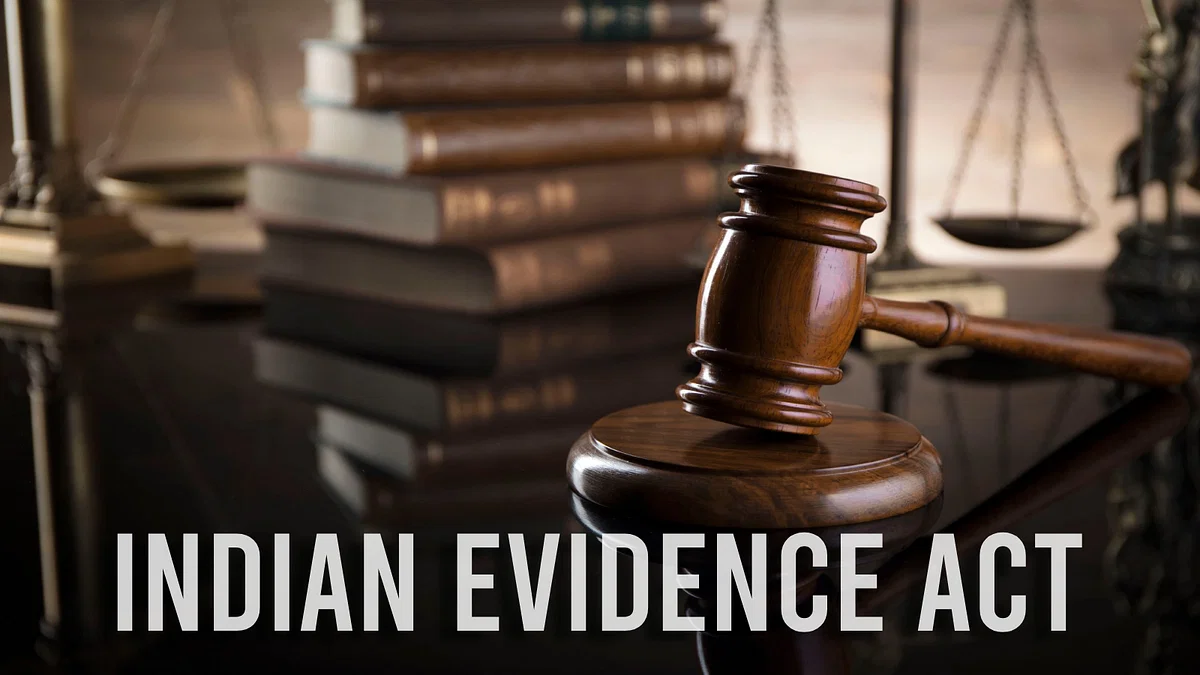Description

Copyright infringement not intended
Picture Courtesy: www.barandbench.com
Context: The Supreme Court ruled that Section 106 of the Evidence Act doesn't impose a burden on the accused in a criminal trial. It applies when the accused fails to explain pertinent facts within their knowledge, allowing the court to consider this failure as relevant evidence.
About Section 106 of the Indian Evidence Act 1872
- Section 106 of the Indian Evidence Act 1872, is indeed a fundamental provision that plays a significant role in legal proceedings.
- Rebuttable Presumption: Section 106 creates a rebuttable presumption. This means that the party against whom this presumption is raised has the opportunity to disprove it with contrary evidence.
- Application to All Proceedings: Section 106 applies to various types of legal proceedings, including civil and criminal cases. It ensures a fair and just legal process across different contexts.
- Relevance to Direct and Circumstantial Evidence: This provision is relevant to both direct and circumstantial evidence. Whether the evidence is straightforward or inferred from circumstances, the party with special knowledge is burdened with proving the fact.
- Special Knowledge and Burden of Proof: The essence of Section 106 lies in cases where a particular fact is known to one person or a specific group of people but not to others involved in the legal proceedings. In such situations, the burden of proof is placed on the person or party who possesses the special knowledge of the fact.
- For example, in a criminal case, if a person is found with stolen goods, and no explanation is provided, the burden falls on the accused to prove how they came into possession of the stolen property.
- Principle of Ease of Proof: Section 106 is rooted in the principle that it is easier for a person to prove something they know to be true, compared to another person trying to prove something they do not have direct knowledge of. This principle acknowledges the practical challenges in proving certain facts and ensures that the party with access to pertinent information is responsible for establishing those facts in court.
- Ensuring Justice and Fairness: By placing the burden of proof on the party with special knowledge, Section 106 safeguards against false claims and fabrication of evidence. It promotes honesty and integrity within legal proceedings. It also ensures that all parties involved have an equal opportunity to present their case, promoting fairness and justice.
- Judicial Discretion and Evaluation: Courts have the discretion to evaluate the evidence presented to determine if the burden of proof has been discharged satisfactorily. If the party with special knowledge fails to provide a credible explanation, the court may draw adverse inferences.

Summary
- Section 106 of the Indian Evidence Act embodies the principle of fairness, ensuring that the responsibility to prove specific facts lies with those who possess the necessary information. It upholds the integrity of legal proceedings by discouraging false claims and fabrications, thereby contributing to the overall pursuit of justice.
|
PRACTICE QUESTION
Q. What are the key challenges faced in reforming the criminal justice system in India, and what comprehensive measures can be implemented to address these challenges and ensure a fair and efficient justice system for all?
|
















